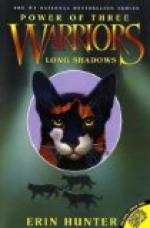Why must he be compelled to worry over the Double-Crank, that had always seemed to him a synonym for success? Why must his first and only love affair be hampered by an element so disturbing as Mama Joy? Why, when he had hazed the Pilgrim out of his sight—and as he supposed, out of his life—must the man hover always in the immediate background, threating the peace of mind of Billy, who only wanted to be left alone that he and his friends might live unmolested in the air castle of his building?
One night, just before they were to start out again gathering beef for the shipping season, Billy thought he had solved the problem—philosophically, if not satisfactorily. “I guess maybe it’s just one uh the laws uh nature that you’re always bumping into,” he decided. “It’s a lot like draw-poker. Yah can’t get dealt out to yuh the cards yuh want, without getting some along with ’em that yuh don’t want. What gets me is, I don’t see how in thunder I’m going to ditch m’ discard. If I could just turn ’em face down on the table and count ’em out uh the game—old Brown and his fences and his darn ditch, and that dimply blonde person and the Pilgrim—oh, hell! Wouldn’t we rake in the stakes if I could?”
Straightway Billy found another element added to the list of disagreeables—or, to follow his simile, another card was dealt him which he would like to have discarded, but which he must keep in his hand and play with what skill he might. He was not the care-free Charming Billy Boyle who had made prune pie for Flora Bridger in the line-camp. He looked older, and there were chronic creases between his eyebrows, and it was seldom that he asked tunefully
“Can she make a punkin pie, Billy boy, Billy Boy?”
He had too much on his mind for singing anything.
It was when he had gathered the first train load of big, rollicky steers for market and was watching Jim Bleeker close the stockyard gate on the tail of the herd at Tower, the nearest shipping point, that the disagreeable element came in the person of Dill and the news he bore.
He rode up to where Billy, just inside the wing of the stockyards, was sitting slouched over with one foot out of the stirrup, making a cigarette. Dill did not look so much the tenderfoot, these days. He sat his horse with more assurance, and his face was brown and had that firm, hard look which outdoor living brings.
“I looked for you in yesterday or the day before, William,” he said, when Billy had greeted him with a friendly, “Hello, Dilly!” and one of his illuminating smiles.
“I’m ready to gamble old Brown has been and gone and run the creek dry on yuh again,” bantered Billy, determined at that moment to turn his back on trouble.




